When food goes to landfill, it’s a wasted opportunity to advance sustainability for our hospitality industry and improve financial outcomes for operators.
Tackling this pressing issue around food waste head on, the Restaurant Association, along with our programme partners, Edge Impact, launched Kai Keepers at the start of this year. With Kai Keepers we are looking to address the levels of avoidable food waste, providing insights and guidance to drive awareness and action across our industry. After completion of the first phase of the pilot, data from this ground-breaking programme has already unveiled detailed insights that will help understand behaviours, measure waste levels in the industry, and identify key areas for targeted reduction.
Amongst our 120 volunteer participating operations, 75 percent noted that a key driver for joining the Kai Keepers programme is to reduce operational costs, a critical consideration given the challenges posed by the current trading environment, rising labour costs, and increasing produce prices.
Over a seven-day period, the Kai Keeper participants across Auckland, Bay of Plenty and Waikato took part in a pilot assessment where more than 13 tonnes of food waste were generated from the preparation of 108,730 meals. According to self-reported data from participants, the food waste was generated from food preparation (44%), plate waste (43%) and spoilage (13%).
The baseline assessment revealed 5 key insights
Staff involvement: Participants reported that business owners, managers, and staff were eager to adopt and enhance waste reduction practices, showcasing the industry’s growing commitment to sustainability.
Food waste environmental impact: Over 13 tonnes of food waste was recorded from 108,730 covers. This waste resulted in more than 15 tonnes of CO2-e emissions, the equivalent of 70,840 kilometers travelled in a medium petrol-powered car. This is the same distance as travelling from Auckland to Wellington around 110 times.
The cost of food waste: The 13 tonnes of food waste is estimated to have cost businesses a combined $102,000 in lost value over the seven-day period based on food purchasing and waste management costs.
Average waste per cover: Each meal contributes an average of 171 grams of food waste, costing approximately $0.94 per cover.
Top wasted items: The top five food waste items nominated by participants were sauces such as ketchup and pesto, fresh and/or cooked vegetables, garnishes and side salads, meat, and eggs (including shells and cooked eggs).
It is important to note that information like this has not been collected at this level before and is incredibly useful for business owners because it helps them address the root causes of food waste. We’re not always a data-rich industry, so these insights are invaluable and will help us to identify ways to reduce waste in our industry. This is both a financial issue for our businesses as well as an environmental one. We need to encourage some behaviour changes to curb this waste.
Understanding the drivers of food waste is crucial for delivering long-term impact. As the saying goes, ‘what gets measured gets managed.’ Kai Keepers’ baselining phase has provided critical insights to the hospitality sector, crucial for reducing waste and preventing commercial losses from food going to waste. The insights from the Kai Keepers programme provide a solid foundation for developing strategies that not only minimise waste but also enhance sustainability across Aotearoa’s cafés and restaurants. By building capability through tailored interventions and embedding these practices, we can achieve significant long-term impacts.
Next step: testing strategies to reduce food waste
The Kai Keepers programme is designed not just to identify these issues but to actively address them through targeted interventions. The programme’s second phase, which will involve testing various strategies to reduce food waste and measuring their efficacy, runs from September 2024 – March 2025.
Some specific interventions will be tested across the 120 volunteer restaurants and cafes, aiming to help them adjust their practices for minimising waste, and ultimately benefiting both the environment and their bottom line.
And while the pilot will run throughout this year, the Association aims to roll out a nationwide programme in 2025.
Keen to know what we are trying to achieve with Kai Keepers? Find out more here.
